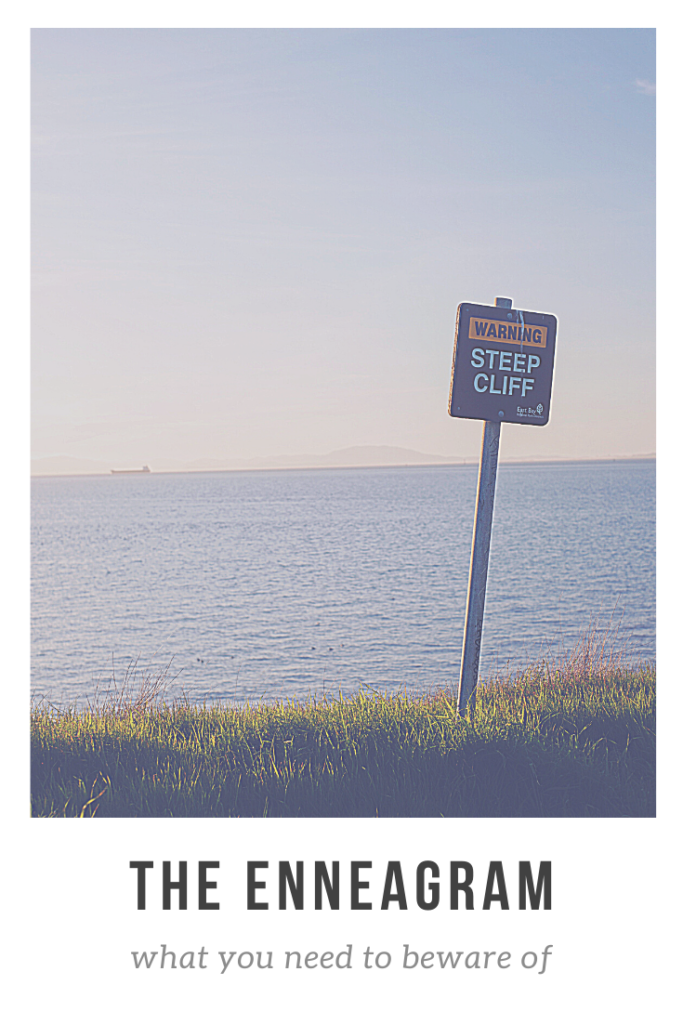I cringe a little bit inside every time someone shares their Enneagram number with me, as if this defines their worth or excuses their behavior.
The enthusiasm over the Enneagram in recent years is a bandwagon I’ve always been leery of. Only recently did I learn why I had such gnawing suspicions about this personality test. Turns out, it’s neither scientific, nor based in Christianity like so many of its enthusiasts think it is.
If you’ve fallen for the Enneagram hype, get ready to have your mind blown.
The Enneagram is not scientific
The Enneagram did not originate out of the field of psychology and it did not come from any psychological studies. More importantly, it has never been proven by social scientists to meet the criteria required for an assessment to be considered scientific, including the following:
1. Reliability
Reliability means the test produces the same results each time you take it.
Most people who’ve taken the Enneagram more than once have said they got a different result each time. Or, their wing number changed when taking it again.
This folks, is not the definition of reliable!
2. Validity
For a test to be valid, it depends on how well it measures what it claims to measure.
For the Enneagram to be valid, it should measure the personality types it says it measures. But instead of measuring personality types, it measures strengths and values. This is the same as trying to measure length in ounces or pounds instead of inches or feet.
Furthermore, its results are too broad and too general. This is why people easily identify with it and feel their results are so “spot-on.”
As a result, Enneagram numbers are completely arbitrary.
3. Independent
The measures of a true personality test should be independent. However, the Enneagram’s different personality types are not independent from each other.
I can be a helper, an achiever, an investigator, and an enthusiast all at the same time. I can be an enthusiastic, helpful, loyal, and achieving reformer. And I can be an individually investigative peace-maker who challenges non-peaceful efforts.
Are you getting the picture here?
Scientifically speaking, the Enneagram is about as valid and reliable as your daily horoscope. And people read into it what they want to, much like they do their horoscope.
The Enneagram is not based in the Christian faith
There are a lot of claims the Enneagram is ancient and is based in Christianity. This is one of the reasons why it’s so popular among Christians and has made its way into the church. But a simple investigation into the tool reveals its theories are based on esoteric teachings and an occult worldview.
It originated in the early 20th century, first as something called the Enneagon, from an esoteric teacher named George Gurdjieff. Gurdjieff’s follower Oscar Ichazo, an esoteric occult teacher, had a student named Claudio Naranjo. Naranjo says he and Ichazo claimed the Enneagon was ancient when they knew it wasn’t.
Naranjo added the nine personality types to the Enneagon in the mid-20th century, making it the Enneagram. He admits his nine personality types came partly from his own observations, and mostly from the New Age practice of automatic writing. From there it became popular among New Age followers.
Jesuit priest Bob Ochs learned about the Enneagram from Naranjo, and then introduced it to the Catholic church, which is how Richard Rohr learned of the Enneagram. Since then, it’s made its way into the Protestant church through Rohr’s various followers and readers. (See the link in the source list below to a video that gives a full history.)
The Enneagram Institute is a New Age entity, not a Christian entity. Therefore, if you are a Christian, the use of the Enneagram goes against your biblical beliefs. You may find this surprising since so many churches and people of faith have been promoting the use of it. Perhaps they are just as unaware of the above information as you may be.
But don’t feel bad. We’re all susceptible of being deceived by things appearing to be based in Christianity but aren’t. This shouldn’t be a surprise to anyone who reads or believes the Bible since it warns,
“For false messiahs and false prophets will rise up and perform great signs and wonders so as to deceive, if possible, even God’s chosen ones. See, I have warned you about this ahead of time.” Matthew 24:24-25
Now that you’ve been warned, you may want to reconsider using this personality test, especially if you’re of the Christian faith. Use this as a lesson to be more discerning before accepting something just because “everyone else is doing it!”
You are more than just a number!
Regardless of your beliefs, the biggest warning of the Enneagram is, it can cause you to filter who you are and why you do things through your Enneagram number. (Some people even use it as an excuse for bad behavior!)
Instead, take comfort in this fact: you are more than just a number! Your identity is not in your Enneagram type. You were made to be so much more!
Sources
- Traditional Enneagram (History), by the Enneagram Institute
- Research Methods in Psychology, by Paul C. Price
- “The Enneagram Test Should Not Define Personality,” by Amanda Frese
- “The Fictions and Facts of the Enneagram,” by Marcia Montenegro, former New Age astrologer turned Christian
- “The Enneagram GPS: The Gnostic Path to Self,” also by Marcia Montenegro
- Video: The Origins of the Enneagram
- Video: Talking About the Enneagram: Is it Dangerous? Things Christians Should Know
- “The Not-So-Sacred Enneagram,” by Kenneth Berding
Related post
How to Know When It’s NOT the Right Time for Career Assessments

